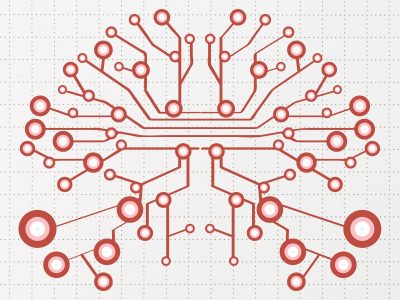This year marks the 700th anniversary of Dante Alighieri’s death, but his masterpiece, “The Divine Comedy,” transcends time.
The poem is an encyclopedia of human nature, especially human fallacy, which Dante explores in the afterworld as the main character. His cathartic journey is characterized by countless encounters with fantastical and historical figures, each of them representing a great learning opportunity for him and the reader.
In the fictional landscape of Hell, Dante borrows Homer’s hero from the “Odyssey” to enlighten his audience on a specific subject: the limits of human knowledge.
Odysseus is portrayed as a sinner because of the excessive curiosity he demonstrated during his trip back to Ithaca. His quest for adventure causes him to have experiences beyond what nature set as reasonably knowable, such as hearing the Sirens sing and crossing the Pillars of Hercules.
Humans “were not made to live as brutes, but to follow virtue and knowledge,” hence his thirst for the unknown, according to Dante.
His condemnation of the character for such a reason appears rather confusing and outdated in today’s society.
We tend to conceive human knowledge as something that should be continuously furthered and deepened. We always keep our curiosity alive because learning more means emancipating ourselves from our mind’s limits.
Even the boundaries that were previously set by empirical evidence in some fields are now being overcome thanks to our fast-paced technological development.
Overall, we would tend to disagree with Dante’s placement of Odysseus in Hell and consider Odysseus an admirable paradigm of how having an inquisitive spirit can enhance wisdom.

But perhaps we shouldn’t instinctively discredit the author’s opinion.
Although never-ending research and improvement can be extremely beneficial for most fields of study, the possibility of setting limits could be a useful preventative measure for others. For instance, there is one modern domain in which the debate of how far humans should go still has no definitive answer: artificial intelligence.
AI has been expanding rapidly over the past decade and is showing no signs of slowing down any time soon. Apart from the introduction of actual human functions in AI, the improvement of deepfake technology has caused concern.
People are seriously starting to fear AI, not only because of the more obvious consequences it might have on the unemployment rate, but also because it could become a potential threat for humankind.
There are two main case scenarios that could result in dangerous AI-related situations. Firstly, AI can be programmed with the goal of destruction. Weapons that successfully cause mass casualties can be easily developed with modern technology, and it can become quite hard to control who comes into possession of the machines.
Secondly, even technology designed to be advantageous for us can be responsible for harm. If a machine is programmed for one specific purpose, it will achieve it at all costs. If it encounters something in its way — whether it’s a person or the environment — it could automatically overpower it.
Even those whose career and success are based on similar research — such as Elon Musk or Bill Gates — have been increasingly outspoken about its potential negative impact.
At this point, it is nearly impossible to draw a line between the technology that can help us and that which can harm us, but being more mindful about what we decide to develop could ensure our safety.
If applied to health care, AI can gift us with incredible improvements: from more accurate diagnoses to faster vaccine development. However, do we really need robots that compete with our cognitive and physical abilities? Probably not.
Although Odysseus was certainly right in encouraging us to never stop learning, we should also take Dante’s advice into consideration and pay attention to what we do with the knowledge we acquire.




























































































































